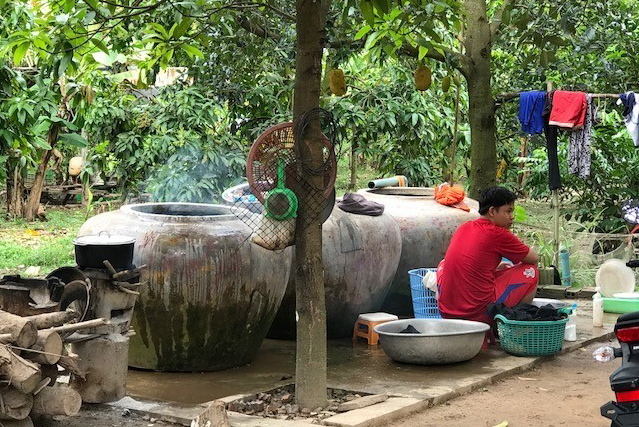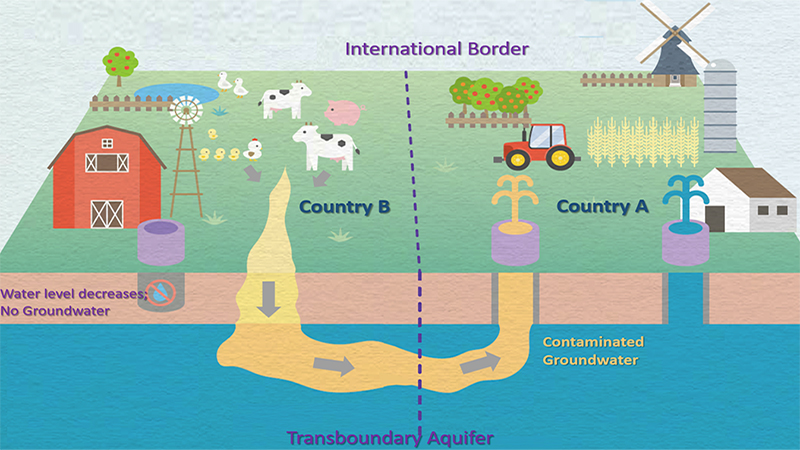Cambodian village test site for project to improve groundwater management in Greater Mekong Subregion
Leuk Daek District of Cambodia is located in a downstream area of the Mekong River near the Viet Nam border. The village does not have a modern water supply system. Households use untreated river water, which is not uncommon in Cambodia where about 12 million people do not have access to safely managed drinking water.
The groundwater resources in the area, which come from the Cambodia-Mekong River Delta Aquifer that sits between Cambodia and Viet Nam, are socially and economically important for both countries and yet their condition is poorly understood, particularly in areas such as Leuk Daek. This is partly due to Cambodia lacking the professional capacity and resources to investigate and manage the groundwater resources effectively.
Leuk Daek is the first study area of a project that aims to address this dearth of information. The project to “establish a transboundary aquifer monitoring well network in GMS [Greater Mekong Sub-region]” is being carried out by the Coordinating Committee for Geoscience Programmes in East and Southeast Asia (CCOP), the Korea Institute of Geoscience and Mineral Resources, (KIGAM) and Cambodia’s Ministry of Mines and Energy.
As part of the project, a transboundary aquifer monitoring well was installed in the area late last year. The monitoring system aims to better understand the state of the transboundary groundwater resource, as well as to explore the potential socio-economic and ecological impacts of groundwater in the area.
This information will then be presented to decision-makers and the local community to encourage the sustainable use of groundwater resources, and will also aim to improve the access of villagers in the downstream Mekong River to clean water and sanitation.

At the sub-regional level, it will also promote a strengthened regional partnership towards achieving the equitable and sustainable management of shared groundwater resources in GMS countries.
This initiatives stemmed from discussions coming out of a workshop held in Phnom Penh in July of last year where experts from Cambodia, Lao PDR, Thailand and Viet Nam met to discuss how to promote information sharing as well as best practices in transboundary aquifer management among Mekong countries.
They found that the lack of a hydrogeological database and limited institutional framework for the co-investigation of groundwater resources were among the most prominent barriers to effective transboundary aquifer management.

The recently launched project aims to address this, responding to a fundamental need in GMS countries where groundwater is becoming increasingly important as a source of fresh water for food security, livelihoods and climate change adaptation.
Groundwater is a precious resource for millions in Asia, who use it for crop irrigation, food production as well as industrial and domestic purposes. Explosive population growth and intensive farming practices mean that Asia accounts for the majority of groundwater withdrawal and usage worldwide.
When groundwater spans national borders – as it does in this case – and different countries have competing priorities for its use, UNESCO champions cooperation and collaboration for the sustainable management of groundwater.

Top Photo: A transboundary groundwater monitoring well was installed in southern Cambodia.






